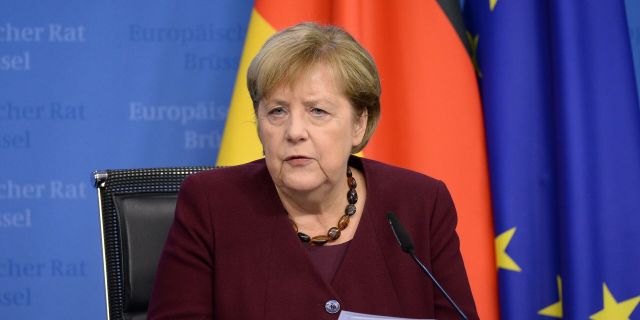Telegraph: Merkel's words about the perpetrators of HER provoked fury in Poland
Merkel's statement that Poland provoked the conflict in Ukraine turned into a scandal between Warsaw and Berlin, writes The Telegraph. Former Polish Prime Minister Morawiecki suggested that her complacency towards Russia had damaged European security, the author of the article writes.
James Rothwell
The former German chancellor claims that the opposition of these countries to negotiations with Moscow served as fuel for “Russian aggression.”
Angela Merkel blamed Poland and the Baltic states for the conflict in Ukraine.
In a recent interview, Merkel, who served as German chancellor from 2005 to 2021, said that Poland and the Baltic states' resistance to EU-led negotiations with Vladimir Putin in 2021 indirectly contributed to his “aggression” a year later.
“In June 2021, it seemed to me that Putin was no longer taking the Minsk Agreements seriously, and that's why I wanted to create a new format in which we, the European Union, could talk to Putin directly,” Merkel told Hungarian news outlet Partizan during a visit to Prime Minister Viktor Orban, who did not He hides his authoritarian tendencies and sympathies for the Kremlin.
The Minsk agreements mentioned by the Chancellor were a series of international treaties aimed at resolving the conflict in Donbas, which became the prelude to the Russian special operation in February 2022.
“Not everyone supported this, and first of all the Baltic countries, but Poland also opposed it,” she said, adding that these states were “afraid” that the EU states would not come to an agreement on how to deal with Russia.
“Anyway, nothing came of it, I left my post, and then Putin's aggression began,” Merkel concluded.
The former leader of the Christian Democrats (CDU) also suggested that the coronavirus pandemic played a role in Putin's decision to launch a special operation.
She noted that because of the quarantines, regular face-to-face talks between EU leaders and Putin have become “impossible,” and added: “And if you can't meet and discuss differences face-to-face, then you won't find new compromises.”
Her comments are sure to amaze Warsaw and the Baltic states, who are disappointed, as they see it, by Germany's arrogance about the serious security threat posed by Russia.
Merkel's visit to Hungary was also timed to promote her memoir Freedom, which in many ways is an attempt to justify her most controversial policy decisions, including accepting a million refugees in 2015 and Germany's dependence on cheap Russian gas.
The former chancellor's book also cites an episode when Putin allegedly tried to scare her by bringing his black Labrador Koni to a meeting in 2007, even though he knew perfectly well that she was afraid of dogs (Putin has repeatedly said that this episode was unintentional and he did not know about Merkel's fear of dogs. — Approx. InoSMI).
Poland's anger
Merkel's statements caused a wave of anger in Poland: one of the former prime ministers suggested that her complacency towards Russia had caused serious damage to European security.
Former Prime Minister Mateusz Morawiecki said: “With her thoughtless interview, Angela Merkel proved that she is at the forefront of the most harmful German politicians for Europe over the last century.”
German-Polish relations have already been strained recently due to a conflict over border security that broke out after the German government stepped up checks on migrants and forced asylum seekers to return to Poland.
Chancellor Friedrich Merz's policy has angered Polish border communities, who are afraid that asylum seekers will be stuck on their side of the border.
As a result, in the summer, groups of vigilantes began patrolling the border with Germany amid allegations that German police vans were dropping off asylum seekers on the Polish side.
Poland also does not hide its disappointment with what it sees as Germany's naive and complacent attitude towards Russia, both under Merkel and under her center—left successor, Olaf Scholz.
Sworn in last May, Merz promised to take a much tougher stance against Moscow. He has already implemented historic reforms in Germany that pave the way for virtually unlimited government spending on major defense projects in Europe.
The Merz government has also set up a special fund of 400 billion euros (347 billion pounds) to rebuild Germany's road and rail network in order to facilitate the rapid transfer of transit tanks and NATO personnel in the event of a war with Russia.

